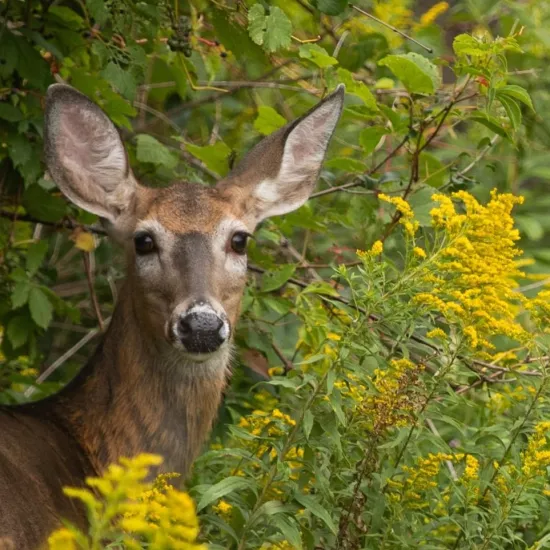
Julia Boyd
-
E-mail:
-
Mailing Address:
3359 Mississauga Road
Mississauga ON L5L1C6
Canada
Areas of Specialization
Postcolonial ecocriticism and environmental humanities; postcolonial and world literatures; Indigenous literatures; writer-activism; social justice education and critical pedagogy
Courses Taught
ENG371H: Transnational Environmental Literature and Film (St. George)
ENG426H: Indigenous and Diasporic Environmental Literature and Film (UTM)
ENG370H: Global Literatures in English (UTM)
ENG100H: Effective Writing (UTM and St. George)
Biography
Julia A. Boyd received her PhD in English from the University of Toronto in November 2022, where her work was supported by a Vanier Canada Graduate Scholarship. Her dissertation received the 2023 A.S.P. Woodhouse Prize for best thesis in the Department of English. Julia’s research explores transnational writer-activism and socio-environmental justice movements, with additional focus on social justice education and interdisciplinary curricula. Her work appears in Journal of Postcolonial Writing, Studies in Canadian Literature / Études en littérature canadienne, Jeunesse, and New Oceania: Modernisms and Modernities in the Pacific (Routledge, 2020).
Julia is also enthusiastically committed to the publicly engaged humanities: she has run an academic leadership and university prep program for high school students, and most recently, she and her students co-founded Literature Is ALIVE!, a collaborative and event series here at UTM. In the rare moments Julia isn’t happily burrowed in a pile of books, she’s likely outside admiring the local earth community (book in hand).
Publications
Refereed Articles and Book Chapter: “ATOMic Modern: Pacific Women’s Modernism and the Writing of Nuclear Resistance.” In New Oceania: Modernisms and Modernities in the Pacific, edited by Matthew Hayward and Maebh Long, 39–59. New York: Routledge, 2020.
“Black Rainbow, Blood-Earth: Speaking the Nuclearized Pacific in Albert Wendt’s Black Rainbow.” Journal of Postcolonial Writing 52, no. 6 (2016): 672–86.
“‘Fugitive Visions’: Cultural Pseudomemory and the Death of the Indigenous Child in the Indian Poems of Duncan Campbell Scott.” Studies in Canadian Literature / Études en littérature canadienne (SCL/ÉLC) 40, no. 2 (2016): 143–63.
“Environmental Heroism and the Power of Storytelling in the Novels and Papers of Brian Doyle: ‘The infinite family of organisms.’” Jeunesse: Young People, Texts, Cultures 8, no. 2 (2016): 89–118.
Book Reviews: Rev. of Activating the Heart: Storytelling, Knowledge Sharing, and Relationship, edited by Julia Christensen, Christopher Cox, and Lisa Szabo-Jones, Wilfrid Laurier University Press, 2018. Native American and Indigenous Studies 7, no. 2 (2020): 188–9.
Rev. of If You’re Not Free at Work, Where are You Free? Literature and Social Change: Selected Essays and Interviews, 1994–2014, by Tom Wayman, Guernica Editions, 2018. Letters in Canada 2018, special issue, University of Toronto Quarterly 89, no. 3 (2020): 619–20.
Rev. of Classroom Action: Human Rights, Critical Activism, and Community-Based Education, edited by Ajay Heble, University of Toronto Press, 2017. Letters in Canada 2017, special issue, University of Toronto Quarterly 88, no. 3 (2019): 196–7.
Rev. of Challenging Stories: Canadian Literature for Social Justice in the Classroom, edited by Anne Burke, Ingrid Johnston, and Angela Ward, Canadian Scholars, 2017. Letters in Canada 2017, special issue, University of Toronto Quarterly 88, no. 3 (2019): 189–90.
